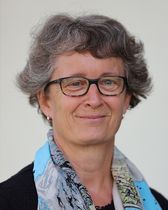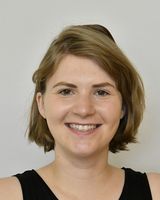Group | Exposome Science
The Exposome Science Group has established one of the largest chronic disease-related biobanks in Switzerland, the SAPALDIA Biobank. The biobank allows for studies of the genetic background of complex chronic diseases and related subclinical phenotypes, with a particular focus on phenotypes related to respiratory and cardiovascular health (i.e. lung function, asthma, COPD, heart rate variability, intima-media thickness and renal function).
Through international collaborations and genetics (e.g. Spirometa) as well as exposome (e.g. EXPANSE, Basel Urban Labs) consortia, staff contribute to and lead large meta-analyses to identify novel disease genes and understand how they modify susceptibility to lifestyle and environmental factors. We also contribute and lead broad analyses on the health effects of the broad exposome and on the mediating molecular pathways. Studies of the interaction of inherited genetic and epigenetic susceptibility factors with exposomel factors are a major focus of the group.
Air Pollution and Health
Our long-standing expertise – nested across all groups of the Chronic Disease Epidemiology unit and several other EPH groups and units – ranges from reviewing the international literature on air pollution and health (LUDOK) and measuring and modelling exposure to ambient air pollution, to investigating its health effects in children and adults, and estimating the related public health burden or the benefits of clean air.
Collaborations and Projects
Our experts serve on committees and advisory boards to advance research and policies at the international level, and collaborate with local and national authorities to provide valuable information on air quality. Seminal long-term projects, such as SAPALDIA, ECRHS, ESCAPE, EGEA, REGICORE, SALIA, EXPOSOMICS and EXPANSE, highlight our involvement in investigating the effects of air pollution on chronic pathologies in various part of the world.

Nicole Probst-Hensch
Professor, PhD (Pharmacy and Epidemiology), MPH
Group Leader
+41612848378
nicole.probst@swisstph.ch
Selected Projects
All ProjectsLatest Publications
All PublicationsDoetzer J et al. Methods and exploratory findings of the first Swiss agricultural health cohort FarmCoSwiss. Sci Rep. 2025;15:10690. DOI: 10.1038/s41598-025-94440-0
Ikuteyijo O.O, Zepro N, Akinyemi A.I, Probst-Hensch N, Merten S. Socio-economic factors influencing intimate partner violence among adolescents and young women in sub-Saharan Africa: a scoping review. Public Health Rev. 2025;45:1607041. DOI: 10.3389/phrs.2024.1607041
Jeong A et al. Lung function-associated exposome profile in the era of climate change: pooled analysis of 8 population-based European cohorts within the EXPANSE project. Environ Int. 2025;196:109269. DOI: 10.1016/j.envint.2025.109269
Karakoltzidis A et al. Polycyclic aromatic hydrocarbon (PAH) exposure among European adults: evidence from the HBM4EU aligned studies. Environ Int. 2025;198(in press). DOI: 10.1016/j.envint.2025.109383
Long K.Z et al. Micronutrient status, food security, anaemia, Plasmodium infection, and physical activity as predictors of primary schoolchildren's body composition in Côte d'Ivoire. Front Nutr. 2025;11:1524810. DOI: 10.3389/fnut.2024.1524810

 Priska Ammann
Priska Ammann
 Johanna Hänggi
Johanna Hänggi
 Medea Imboden
Medea Imboden
 Ayoung Jeong
Ayoung Jeong
 Meltem Kutlar Joss
Meltem Kutlar Joss
 Nicole Probst-Hensch
Nicole Probst-Hensch
 Alzbeta Václavková
Alzbeta Václavková
 Melissa Witzig
Melissa Witzig